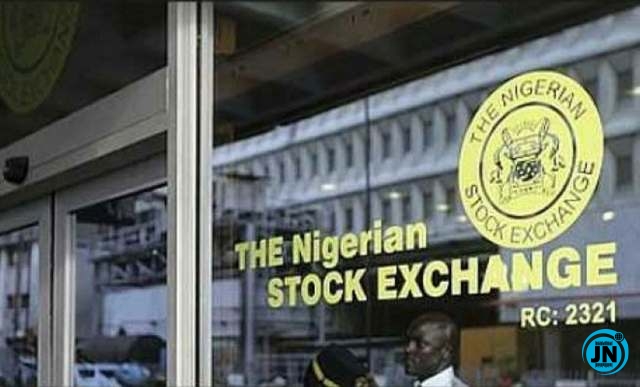
l186% rise in TB yields lures away investorslAnalysts see the bleak outlook for Q1
The stock market ended last month in a full reverse mode, losing N1.38 trillion as investors’ preference shifted to the fixed income market in response to a 186 percent increase in yields on treasury bills.
Financial Vanguard analysis showed that average yields on primary market treasury bills (TBs) rose to 3.67 percent at the end of February from 1.28 percent in January. This translated to a 186 percent increase.
Consequently, the stock market was dominated by sell pressures for the most part of February, prompting the market capitalization of all listed equities to fall by N1.364 trillion or 6.15 percent to N20.823 trillion at end of the month from N22.187 trillion at end of January.
Similarly, the benchmark All Share Index (ASI) fell by 6.16 percent to 39,799.86 points from 42,412.66 points in January, indicating a 6.16 percent decline.
This is in sharp contrast to the upward performance of the stock market in January when the benchmark All Share Index (ASI) rose to 42,412.66 points from 40,270.39 points at the beginning of the year as a result of low yields on TBs.
Though investment analysts opined that the release of the 2020 full-year financial report could temper the downward trend recorded in February, they, however, warned that further rise in yields would continue to hurt the market going into March and for the rest of the first quarter (Q1) 2021.
Meanwhile, the breakdown of activities in the month of February showed that performance across sectors was also negative with the insurance sector leading with a 17.82 percent decline, followed by the banking sector (-9.73%), industrial goods (8.80%), consumer goods (8.12%) and the oil and gas sector, which fell by 4.36 percent.
Analysts’ opinion
Investment analysts explained that apart from the rising yields in fixed income, profit taking by investors also played a part in dragging the local bourse down.
David Adonai, Managing Director/CEO, Highcap Securities, explained that the equities market responds to macroeconomic realities, saying: “Declining yield in debt and high macroeconomic liquidity drove the equities market up in January, but in February, the situation is different.”
Though he said that the main driver is now corporate disclosures, he asserted that many investors are apprehensive that corporate fundamentals may not justify the rally in equities.
“As a result, investors are adopting defensive strategies until proved otherwise by stocks which will meet or surpass expectations.”
He observed that the market may also be experiencing some correction, arguing that the last appreciation was too excessive.”
Speaking in the same vein, Mallam Garba Kurfi, Managing Director/CEO, APT Securities and Fund, attributed the bearish trend to profit-taking activities, saying that February has eroded gains made in January in the last three consecutive years in 2019, 2020, and now 2021 despite changes made by the Nigerian Stock Exchange (NSE) in its financial reports filling rule where companies are made to release their management account for the fourth quarter before the declaration of audited accounts.
Agreeing with them, Mrs. Toyin Sanni, Group CEO, Emerging Africa Capital Group, said: “The increasingly attractive yields in the fixed income market were definitely a huge factor in the downturn of the equity market.
The next most important factor is profit-taking. Considering that the NSE was the best performing stock market in the world in the year 2020, it is only natural that investors will begin to realize some of their profits.
“Also, the release of not-so-impressive companies’ full-year performance reports for 2020 characterized by the COVID-19 pandemic is also a major factor.”
Outlook for Q1
Speaking on the outlook for the rest of the first quarter (Q1) 2021, Adonai said: “If the results and dividends announced by major companies are impressive, and if the rally in crude oil price is sustained, and if the yield on debt does not go higher, demand for equities may increase and stem the tide of decline.”
Ayodeji Ebo, Senior Economist/Head, Research & Strategy, Greenwich Merchant Bank, said: “Rising fixed income yields will continue to suppress the performance of the equities market, however, the influx of impressive financial performance and corporate actions will reduce the impact.
“Investors will cherry-pick stocks with good fundamentals. However, as full-year corporate actions releases wind down, we expect the equities market to dip presenting new entry opportunities.”
On the outlook for this month, Toyin Sanni said: “For the month of March, there is likely going to be a rebound in the market as investors buy back at discounts and also position themselves to meet the closure of register deadlines for dividend payment which have been announced.
“Listed companies are positioned to record positive performances in the first quarter of the year 2021 as the COVID-19 recovery kicks in and economic activities return to normal. This could contribute to a significant uptrend in the market as a response.
“However, if the yields in the money market and fixed income space continue to increase at their current pace, it could lead to outflow of funds from the stock market in the longer run, leading to a bearish performance.
“The recent improvement in the rate environment in the USA could also lead to foreign capital flowing out of the Nigerian markets to a more stable environment.”


